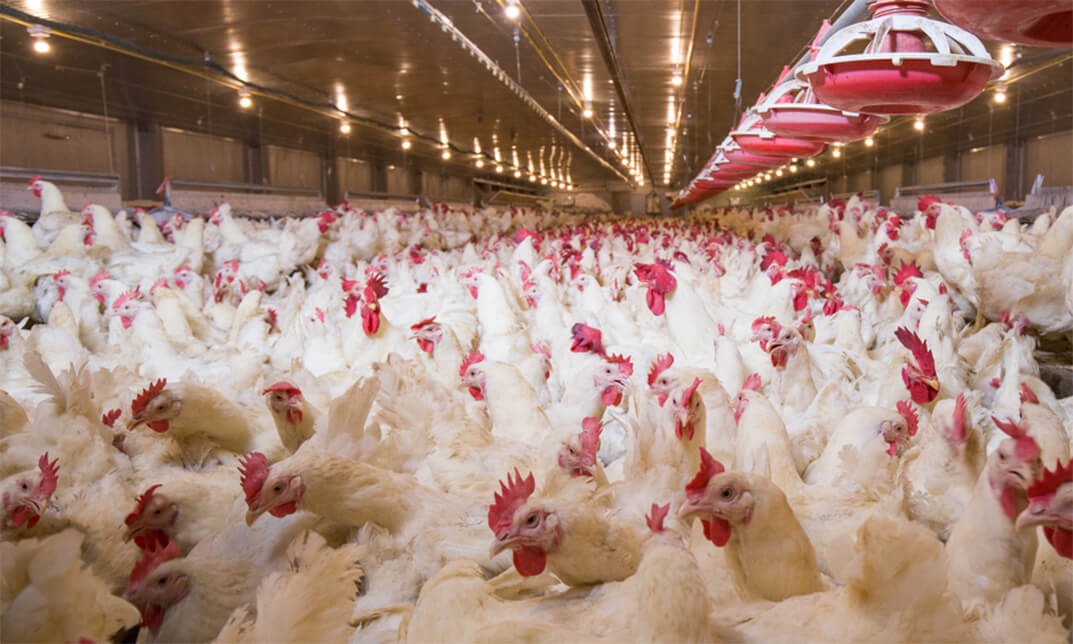Diploma in Poultry Farming
CPDUK Accredited | 50% OFF Certificate & Transcript
271 Students enrolled on this course 5 (4 Reviews)
 Last updated January 23, 2024
Last updated January 23, 2024
Our award-winning Diploma in Poultry Farming is our most popular online course for anyone looking to excel in the farming industry.
Structured into 25 Units, packed with expertly-designed online study materials, practical assessments, mock exams, PDF handouts and video lessons, you will learn everything you need to know to succeed.
Covering all aspects of raising, farming and slaughtering chickens, you will first learn about the different breeds of chickens, collecting and selling eggs and organic feeding procedures. After this, you will move onto the biology and life cycle of chickens, characteristics of organic poultry systems, incubation, feeding and potential hazards, and look at the business side of poultry farming, with lessons on pricing, marketing, investment and project organisation.
Why choose this course
- Earn an e-certificate upon successful completion.
- Accessible, informative modules taught by expert instructors
- Study in your own time, at your own pace, through your computer tablet or mobile device
- Benefit from instant feedback through mock exams and multiple-choice assessments
- Get 24/7 help or advice from our email and live chat teams
- Full Tutor Support on Weekdays
Course Design
The course is delivered through our online learning platform, accessible through any internet-connected device. There are no formal deadlines or teaching schedules, meaning you are free to study the course at your own pace.
You are taught through a combination of
- Video lessons
- Online study materials
- Mock exams
- Multiple-choice assessment
Certification
After the successful completion of the final assessment, you will receive a CPD-accredited certificate of achievement. The PDF certificate is for £9.99, and it will be sent to you immediately after through e-mail. You can get the hard copy for £15.99, which will reach your doorsteps by post.
Who is this course for?
Course Curriculum
| Poultry in UK | |||
| Characteristics of Organic Poultry Systems | 00:30:00 | ||
| Main Issues for Consideration | 00:30:00 | ||
| Feeding Organic Poultry | 01:00:00 | ||
| Breeds | 00:15:00 | ||
| Brooding | 01:00:00 | ||
| The Growing Bird | 01:00:00 | ||
| Slaughter Ages | 00:15:00 | ||
| Killing and Processing Poultry | 01:00:00 | ||
| Financial Data | 01:00:00 | ||
| Poultry Farming | |||
| HOW MUCH INVESTMENT IS REQUIRED IN THE POULTRY BUSINESS? | 00:30:00 | ||
| WHAT BRANCH OF THE POULTRY BUSINESS? | 01:00:00 | ||
| THE IMPORTANCE OF POULTRY | 02:00:00 | ||
| WHERE TO LOCATE | 00:30:00 | ||
| THE DOLLAR HEN FARM | 00:30:00 | ||
| INCUBATION | 01:00:00 | ||
| FEEDING | 00:30:00 | ||
| DISEASES | 01:00:00 | ||
| DIFFERENCE BETWEEN POULTRY FLESH AND POULTRY FATTENING | 00:30:00 | ||
| MARKETING POULTRY CARCASSES | 00:30:00 | ||
| QUALITY IN EGGS | 01:00:00 | ||
| MARKETING ORGANIZATION FOR EGGS | 01:00:00 | ||
| BREEDS OF CHICKENS | 01:00:00 | ||
| PRACTICAL AND SCIENTIFIC BREEDING | 01:00:00 | ||
| EXPERIMENT STATION WORK | 00:30:00 | ||
| POULTRY ON THE GENERAL FARM | 00:30:00 | ||
| Recommended Reading | |||
| Recommended Reading: Diploma in Poultry Farming | 00:00:00 | ||
| Mock Exam | |||
| Mock Exam- Diploma in Poultry Farming | 00:20:00 | ||
| Final Exam | |||
| Final Exam- Diploma in Poultry Farming | 00:20:00 | ||
| Order your Certificates & Transcripts | |||
| Order Certificates & Transcripts / CPD QS | 00:00:00 | ||
Course Reviews
Frequently asked questions
Can’t find the anwser you’re looking for ? Reach out to customer support team.
There are no specific prerequisites for this course, nor are there any formal entry requirements. All you need is an internet connection, a good understanding of English and a passion for learning for this course.
You have the flexibility to access the course at any time that suits your schedule. Our courses are self-paced, allowing you to study at your own pace and convenience.
For this course, you will have access to the course materials for 1 year only. This means you can review the content as often as you like within the year, even after you've completed the course. However, if you buy Lifetime Access for the course, you will be able to access the course for a lifetime.
Yes, upon successfully completing the course, you will receive a certificate of completion. This certificate can be a valuable addition to your professional portfolio and can be shared on your various social networks.
We want you to have a positive learning experience. If you're not satisfied with the course, you can request a course transfer or refund within 14 days of the initial purchase.
Our platform provides tracking tools and progress indicators for each course. You can monitor your progress, completed lessons, and assessments through your learner dashboard for the course.
If you encounter technical issues or content-related difficulties with the course, our support team is available to assist you. You can reach out to them for prompt resolution.





 LOGIN/Sign up
LOGIN/Sign up





R. Boateng (Diploma in poultry farming)
Very very helpful course I have learnt so much in these months, am just going to put all what I have learnt in practice. Thank you once again
very good
Happy with course quality
They provide very good quality courses every time.
Diploma in poultry farming
Excellent and very interesting course would recommend to anyone thank you Janets